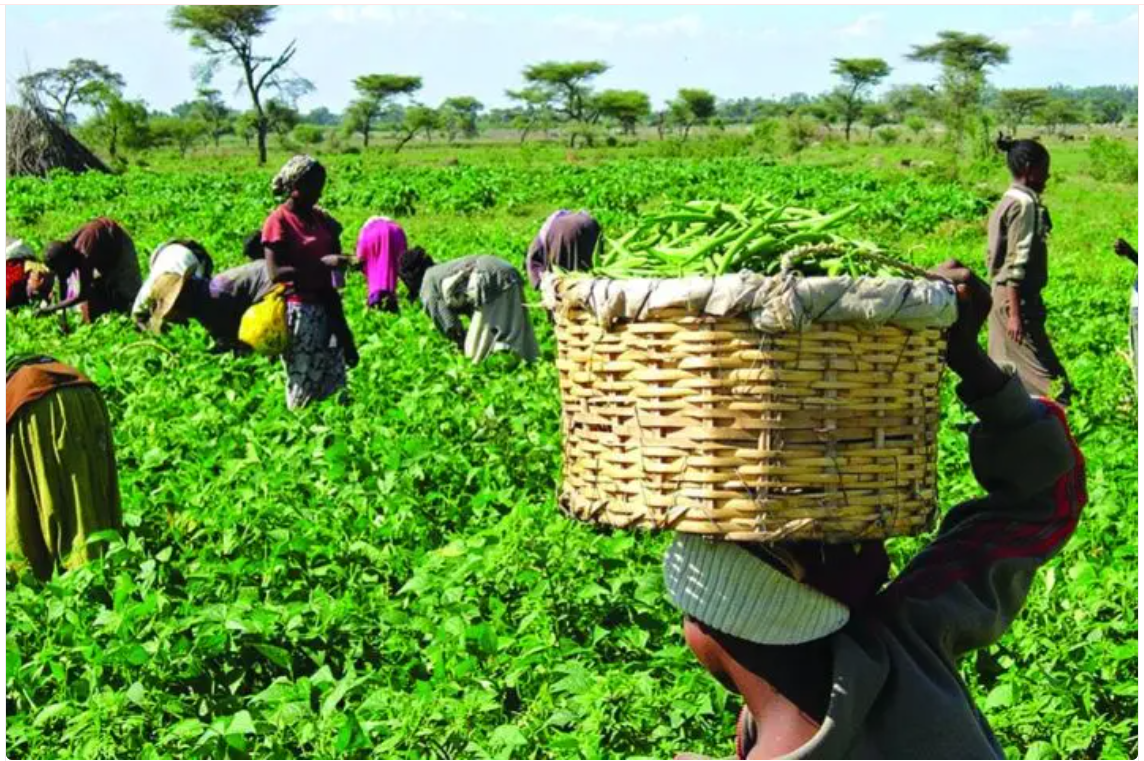In a heartwarming display of successful adoption of climate-smart agricultural practices, farmers in the Lafia Local Government Area of Nasarawa State, Nigeria, came together in Assakio to celebrate an abundant harvest. The jubilant gathering, consisting of both women and men engaged in small-scale rice production, shared their experiences four months after being introduced to innovative farming technology by the Sasakawa Africa Association (SAA), a Japanese organisation dedicated to improving crop yields and livelihoods.
The primary focus of this transformative technology, described as “Bokashi and Biochar,” is to mitigate the impact of climate change, which has resulted in challenges such as drought and flooding in the region. The technologies aim to decarbonize rice farms, thereby making them more resilient to these climatic variations.
Read also: EOSDA and Space Technology to Fight Climate Change in Africa
Soil Enhancement through Organic Manure
SAA Program Assistant on Regenerative Agriculture, Mariam Aliyu, elaborated on the core objectives of introducing these innovative farming practices. She emphasised the importance of amending depleted soils and reducing carbon emissions from rice fields. The technologies work by serving as organic manure that enhances soil structure and other essential properties for crop production. They also help retain soil moisture and increase soil fertility over an extended period, thus providing the ideal environment for crops to thrive. Ms. Aliyu further pointed out that the materials required for implementing these technologies are both affordable and readily available to farmers.
Bokashi Preparation
For the preparation of Bokashi, the materials needed include rice husk, fermented dairy products, fruit waste, and yeast. These components are combined and allowed to decompose within an airtight container. This process helps improve the condition of the soil, reducing the need for inorganic fertilisers and promoting more sustainable agricultural practices.
Biochar Production
Biochar, on the other hand, is produced by burning rice husks under pyrolysis, a process that occurs in the absence of oxygen. Once the rice husks have reached the required burning level, they are allowed to cool and then activated with compost, animal manure, or bokashi. Farmers apply this biochar by mixing and incorporating it into the farmland during land preparation. This practice enhances soil quality and promotes improved crop growth.
Addressing Soil Nutrient Depletion
Ibrahim Fagge, Technical Coordinator of Regenerative Agriculture at SAA Nigeria, emphasised that the continuous planting of cereals over the years has depleted soil nutrients. As a solution to this challenge, farmers have been introduced to Regenerative Agricultural practices. These practices include intercropping leguminous crops, such as cowpeas, with cereals like rice, sorghum, millet, and maize. This diverse cropping system helps restore soil fertility and reduce the strain on soil nutrients.
Nigerian Teenagers Develop App To Champion Climate Change Advocacy
Farmers’ Enthusiasm and Achievements
The farmers in Assakio shared their remarkable experiences and celebrated the transformative impact of the new farming practices. Having adopted the modern methods of farming and embraced sustainable agriculture systems, they presented their impressive harvests, which included rice paddies and maize, ready for distribution to off-takers.
One farmer, Abahia James, expressed his satisfaction, stating that the training had equipped them with advanced agronomic practices, including optimised fertiliser application and proper seed planting techniques. He highlighted the shift from the traditional “broadcasting method” of planting to a more efficient transplanting system, which significantly increased their yields.
Mr. James explained that before the training, he used to harvest a maximum of 18 bags of rice paddies from his plot of farmland. However, following the adoption of new practices, this year’s harvest exceeded his expectations. “As we speak, I have harvested over 22 bags, and people are in my farm threshing more rice,” he proudly exclaimed.
These farmers are now reaping the benefits of adopting climate-smart agricultural technologies, with increased yields and a more sustainable approach to farming that promotes both their livelihoods and the resilience of the environment. The success story in Nasarawa State serves as a testament to the positive impact of such initiatives on the agricultural landscape and the well-being of farmers.




